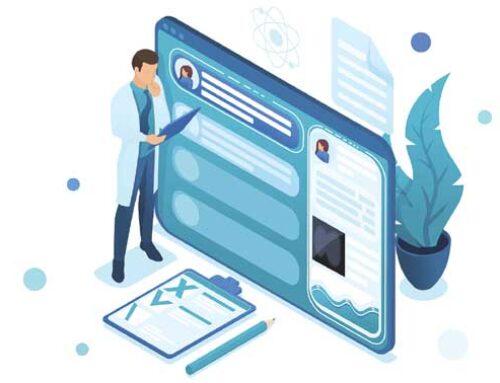 by Donna Vanderpool, MBA, JD
by Donna Vanderpool, MBA, JD
Ms. Vanderpool is Vice President of Risk Management at PRMS, Inc., Arlington, Virginia.
Innov Clin Neurosci. 2016;13(7–8):41–44.
This ongoing column is dedicated to providing information to our readers on managing legal risks associated with medical practice. We invite questions from our readers. The answers are provided by PRMS, Inc. (www.prms.com), a manager of medical professional liability insurance programs with services that include risk management consultation, education and onsite risk management audits, and other resources to healthcare providers to help improve patient outcomes and reduce professional liability risk. The answers published in this column represent those of only one risk management consulting company. Other risk management consulting companies or insurance carriers may provide different advice, and readers should take this into consideration. The information in this column does not constitute legal advice. For legal advice, contact your personal attorney. Note: The information and recommendations in this article are applicable to physicians and other healthcare professionals so “clinician” is used to indicate all treatment team members.
QUESTION
In my mental health practice, I am doing more and more forensic activities, such as IMEs and expert testimony. Since I am not treating the evaluees, there should be no professional liability risk, right?
ANSWER
Your belief was historically correct. However, now courts (in medical malpractice cases) and professional oversight entities (such as licensing boards and professional associations) are showing an increased interest in holding providers responsible for forensic activities.
Liability for Performing an Independent Medical Examination (IME)
When discussing potential professional liability for IMEs, there are at least four liability issues to consider—duties owed to the evaluee, immunity, confidentiality, and administrative actions.
Issue 1—Duty owed to the evaluee. Courts seem to agree that the physician’s duty in performing an IME is not the same as the duty owed to the provider’s patients. The courts disagree, however, on what exact duty, if any, the provider does owe to the evaluee. The traditional view is that there is no physician-patient relationship in IMEs, and therefore no duty owed to the evaluee. However, providers should not assume that just because there is no treatment relationship, that there is no duty owed to the evaluee. Courts have begun to approach the issue of duty of care to the evaluee differently, with some courts finding a “limited” patient-physician relationship for IME purposes, or holding that “the absence of a formal doctor-patient relationship does not necessarily preclude the imposition of a duty of care.”[1]
Courts have found the following duties to be owed by IME providers to the evaluees:
The duty not to injure the evaluee. Most courts agree that even if there is no other duty, the examining physician has the duty to avoid physically and emotionally[2] injuring the evaluee during the examination. But note, an adverse outcome or loss from the IME provider’s report is not an adequate basis for a lawsuit.
The duty to properly diagnose. Some courts impose on IME providers the duty of reasonable care for the discovery of conditions posing imminent danger to the evaluee’s physical and mental well-being, even in the absence of the traditional provider-patient relationship.
The duty to inform the evaluee of a potentially serious medical condition. Expanding the IME physician’s duty even further, some courts have required the provider to disclose to the evaluee any serious medical condition discovered in the course of the evaluation. IME providers should disclose by informing the evaluee directly. In at least one case, this duty to inform was found to be non-delegable, even where the contract with the third party stated that the third party would notify the examinee.[3] Accordingly, providers should ensure all contracts for IMEs allow the evaluating provider to inform the evaluee directly of any serious medical conditions.
This duty is also found in the American Medical Association (AMA) Ethics Opinion 1.2.6 publication, Work-related and Independent Medical Examinations (2016), and may be included in state law. For example, the New Jersey Medical Board, in its regulation 13:35-6.5, requires “that should the examination disclose abnormalities or conditions not known to the examinee, the licensee shall advise the examinee to consult another healthcare professional for treatment.”
Issue 2—Immunity from liability. Forensic providers may believe there is absolute immunity from liability for physicians performing IMEs. Case law has shown that this is not always true. There are two relevant types of immunity:
1. Quasi-judicial immunity—Quasi-judicial immunity is immunity for persons other than judges when performing judicial activities- protects the evaluator’s (e.g., the psychiatrist’s) performance of judicial activities. Courts in most jurisdictions find that court-appointed psychiatrists and psychologists in custody orders are entitled to absolute immunity when ordered by the court to perform an evaluation and provide recommendations to the court.[4]
2. Witness immunity—This type of immunity protects only the actual testimony given in a judicial proceeding. Witness immunity will not preclude a complaint based on the provider’s actions in conducting a forensic evaluation and preparing a report. The case law discussing immunity for IMEs shows that the immunity available to IME physicians varies with the type of IME.
IME provider retained for purposes other than litigation. In this case, without activities in the judicial context, there can be no quasi-judicial immunity or witness immunity.
IME provider retained by a party for litigation purposes. Most courts find that there is no quasi-judicial immunity for an IME provider’s activities where s/he performs the examination at the request of a party, even if the court enters an order authorizing the IME. Quasi-judicial immunity is generally available only where the examiner is retained by and reports directly to the court. However, witness immunity may be available.
IME provider retained by the court for evaluation and recommendations. When the court retains a provider for the evaluation of claims or otherwise, absolute quasi-judicial immunity typically protects the expert, but only for activities that are intimately related to the judicial process of finding facts and rendering decisions.
Issue 3—Confidentiality and HIPAA. Even when no treatment is provided, providers are still ethically and legally obligated to maintain confidentiality. As indicated in the AMA’s Ethics Opinion 3.2.3 publication, Industry-Employed Physicians and Independent Medical Examiners (2016), information obtained outside an ongoing patient-physician relationship is confidential and is to be released only pursuant to a written consent of the individual or as required by law. The opinion further directs that when releasing information, only the minimum necessary for the purpose of the release is to be disclosed.”
The Genetic Information Nondiscrimination Act (GINA) is a federal law prohibiting, in part, the disclosure of “genetic information” to employers. The act specifically defines genetic information to include family history. Accordingly, family history should not be included in reports going to evaluees’ employers.
For providers that are covered providers under the Health Insurance Portability and Accountability Act of 1996 (HIPAA), the Privacy Rule’s requirements apply to all disclosures of protected health information, regardless of the purpose for which the protected health information was created. The type of service rendered and the existence of a provider-patient relationship are irrelevant in determining if the requirements of the Privacy Rule apply. Once a provider meets the regulatory definition of a healthcare provider subject to HIPAA’s regulations, then that provider must comply with the Privacy Rule’s requirements for all uses and disclosures of protected health information.
To assist covered providers in fulfilling this legal obligation, the Privacy Rule has an exception for IME providers to the general rule that treatment cannot be conditioned upon the individual signing an authorization for the disclosure of information. IME providers are expressly allowed to require the evaluee to sign an authorization for the release of protected health information to the third party requesting the IME as a condition of performing the IME.[5]
A final confidentiality issue involves the evaluee who conveys intent to harm a third party. At least one court has reviewed this issue and has determined that any duty to warn or protect obligation that providers owe to patients is similarly owed to evaluees.[6]
Issue 4—Administrative actions. IME evaluees can always file a complaint with the evaluator’s licensing board. Filing a board complaint can be an appealing option to evaluees and other third parties for several reasons, including no requirement of damages as is the case with lawsuits, no statute of limitations/time limit within which the complaint has to be filed, and licensing boards generally investigate all complaints received no matter how meritless they appear to be.
Liability for Providing Expert Testimony in Litigation
Liability exposure for expert witness activities can be divided into three categories: malpractice lawsuits, discipline by the licensing board, and peer review and discipline by professional organizations. Depending on the outcome, each of these three actions could trigger the requirement to make a report to National Practitioner Data Bank.
Malpractice lawsuits. As discussed above, most states recognize immunity from liability for statements made in judicial proceedings. Some courts have declined to follow the general rule and have allowed cases against the expert witness for malpractice. Courts have imposed liability on “friendly” experts, meaning courts have allowed parties to sue their own experts. For example, in one case, the plaintiff’s physician expert witness changed his position and amended his deposition transcript to show support for the opposing side. As a result, the plaintiff lost the case, and then sued their own expert. The appellate court allowed the malpractice case against their own expert to proceed.[7]
Courts would be unlikely to find liability if the expert witness was sued by the opponent, because the expert witness owes no duty to the adversary.
As stated in an opinion by the California Attorney General, “When a physician testifies as an expert in a civil proceeding regarding the applicable standard of medical care and whether the defendant has breached that standard, the physician may not, on the basis of his or her testimony, be held liable in a subsequent tort action brought by the adverse party…”[8] Of course, as pointed out by the California Attorney General, the expert witness may be subject to professional discipline by a medical board.
Discipline by the licensing board. Some states have begun regulating by statute the standards for expert witnesses. State licensing boards may also have special requirements for out-of-state expert witnesses, including licensure in the state for forensic activities. If such requirements are not followed, the out-of-state expert could be accused of practicing without a license, which could result in civil and criminal penalties, as well as possibly voiding the malpractice insurance coverage.
An example of a medical board disciplining a licensee for expert witness testimony is the North Carolina Medical Board. This board disciplined an out-of-state physician who had an inactive North Carolina license for committing unprofessional conduct by misstating in testimony facts and the appropriate standard of care. The physician sought judicial review of the medical board’s decision to revoke his license; the trial court reversed all but one of the board’s grounds for discipline, and sent the case back to the board. The board then revoked his license for one year. This decision was also appealed by the physician, but it was upheld by the trial court. The physician appealed again; the state Court of Appeals agreed with the physician that there was a good faith basis for his testimony and ordered the disciplinary charges be dismissed.[9]
Peer review and discipline by professional organizations. Specialty societies. The American Association (AANS) is an example of a professional organization that has promulgated ethical policies for expert witnesses and has been very active in disciplining its members for improper expert witness testimony. In fact, AANS suspended the member who was disciplined by the North Carolina Medical Board as discussed above. The organization suspended another member who sued the AANS alleging the suspension was improper; AANS won the case and appeals, and the United States Supreme Court declined to hear the case, leaving intact the lower appellate court’s opinion allowing the AANS discipline.
State associations. State medical and psychological associations may have programs to review complaints about expert testimony by their members, and may also refer cases to the state medical board for review.
Summary
Even in the absence of a treatment relationship, courts, state licensing boards, and professional associations are regulating the performance of IMEs and the provision of expert testimony. Accordingly, prior to undertaking these activities, be sure to understand the expectations of the courts (in terms of duties owed to evaluees), licensing boards, and associations. Understand that confidentiality still applies in a forensic practice, and information about the evaluee is to be released only pursuant to an authorization or state law. Ensure you are in compliance with state laws, including licensure and expert witness activities. And, when serving as an expert, be sure to discuss any concerns you have about the case with the attorney that retained you. Lastly, confirm your professional liability insurance policy covers all of the forensic services you wish to provide.
References
1. Stanley v. McCarver, 92 P.3d 849 (Ariz. 2004)
2. E.g., Martinez v. Lewis, 969 P.2d 213, 218 (Col. 1998), Dalton v. Miller, 984 P.2d 666 (Colo. App. 1999), Harris v. Kreutzer, 624 S.E.2d 24 (Va. 2006)
3. Reed v. Bojarski, 764 A.2d 433 (N.J. 2001)
4. Diehl v. Danuloff, 618 N.W.2d 82, 88 (Mich. App. 2000)
5. 45 CFR § 164.508 (b)(4)(iv)
6. Gavin v. Hilton Worldwide, Inc., 291 F.R.D. 161 (N.D. Cal. 2013)
7. Pace v. Swerdlow, 519 F.3d 1067 (10th Cir. 2008)
8. CA Attorney General Opinion No. 03-1201 (April 28, 2004) [accessed at http://ag.ca.gov/opinions/pdfs/03-1201.pdf on 06-15-16].
9. In re Lustgarten, 629 S.E.2d 886 (NC App. 2006).





